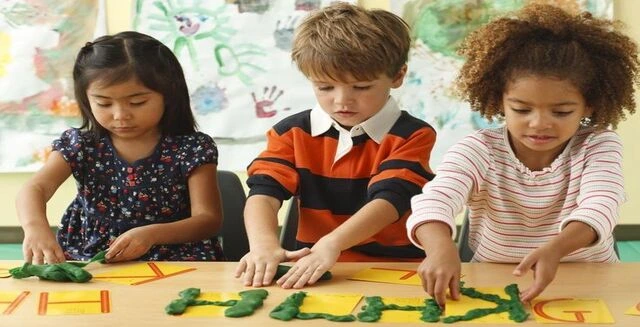
Education is best achieved through solid relationships, particularly between parents and students. Parents that actively participate in their children's educational journey promote not only academic success, but also emotional and social development. In this blog, we will look at the important role parents play in improving their children's learning and provide practical methods to get engaged. The relationship between parents and students is critical for providing a healthy learning environment, and when they work together, they may achieve incredible outcomes. Utilizing a school management system can also streamline communication and help parents stay informed about their child's progress. So, what is parents' role in education? Let's dive in.
The Role of Parents in Education
Parents have always played an important part in their children's development, but their involvement in schooling is much more critical. What is parents' role in education? It's more than just assisting with schoolwork or going to school meetings. Parents are the first instructors in a child's life, laying the groundwork for future learning. Parents mold their children's learning habits by teaching them basic life skills and instilling a passion of learning.
Parents that are actively interested in their child's education assist reinforce the concepts learned in school. This relationship between parents and students encourages youngsters to take their education seriously, stay motivated, and build a strong work ethic. Parents act as role models by demonstrating that learning is a lifelong process.
The Positive Impact of Parental Involvement
Research reveals that when parents participate in their children's education, academic achievement rises dramatically. Students whose parents take an active involvement in their education tend to perform better on tests, have greater attendance, and complete homework on time. Parents provide crucial emotional and motivational support.
Enhancing Academic Achievement
One of the most obvious advantages of parental involvement is an improvement in academic achievement. Students are more likely to get higher grades when their parents monitor homework, attend school events, and encourage them to stay focused. The bond between parents and pupils grows stronger as parents offer direction, encouragement, and structure. Schools can also take steps to enhance parents engagement in school by offering regular updates, organizing interactive events, and fostering open communication channels between teachers and parents.
Providing emotional support
Education is more than just academic accomplishment; emotional well-being is also important. Parents have an important part in their children's emotional development. This assistance enables children to handle stress, develop resilience, and feel safe in both school and home settings. A strong emotional relationship between parents and students boosts confidence and encourages students to take risks with their learning, try new things, and seek assistance when necessary.
Promoting Social Development
Parental participation influences children's social development. When parents are interested in their children's extracurricular activities, they help them develop important social skills like teamwork, communication, and problem-solving. These abilities are not only necessary for academic achievement, but also for life outside of the classroom.
Ways Parents Can Be Involved in Their Child’s Education
While the significance of parents in education is obvious, many parents may ask how they may actively engage, particularly given the pressures of job and daily life. The following are some practical ways for parents to stay involved in a way that helps both themselves and their children.
Create a learning environment at home

Academic success requires a learning-friendly environment at home. Parents can establish an environment that promotes focus and creativity by providing all required resources such as books, writing instruments, and access to educational materials. This enables parents and students to connect over shared learning experiences.
Communicate with Teachers and Schools
Staying in touch with instructors and attending school events are critical components of parental participation. By communicating with instructors on a regular basis, parents may stay informed about their child's progress and highlight any areas that require improvement. Teachers typically enjoy parent involvement because it results in a more coherent learning experience for the student.
Encourage extracurricular activities
Encouraging engagement in extracurricular activities is another method parents may help their children succeed in school. Extracurricular activities, such as athletics, music, and clubs, provide kids with opportunities to learn new skills and form social connections. When parents actively participate in these activities, it promotes their child's confidence and improves their educational experience.
Balancing Work, Life, and School
Parents frequently struggle to strike a balance between their employment and being actively involved in their children's education. However, even tiny efforts can have a tremendous impact. Parents can schedule particular times to check in with their children about school or set reminders to attend school events. The most crucial factor is consistency, not the length of time spent.
Overcoming Common Challenges in Parental Involvement
Despite the obvious benefits, some parents may struggle to stay involved in their children's education. Busy schedules, unfamiliarity with school subjects, or feeling unsure of how to assist can all be obstacles. But overcoming these obstacles is not only feasible, but also extremely rewarding for both parents and children.
Time Management
Time management is one of the most prevalent issues that parents encounter while juggling their duties. Setting minor goals, such as having regular check-ins with your child about school, can make a significant effect. Technology also provides tools such as scheduling apps that can notify parents about upcoming school events or homework.
Academic Challenges
Parents may feel ill-equipped to assist their children with specific courses, particularly as students progress to increasingly difficult areas. In these circumstances, tutoring or educational apps can be useful. Additionally, maintaining open contact with teachers can provide advise on how to effectively support a child who is struggling in specific areas.
Long-Term Advantages of Parental Involvement
Parents' involvement in their children's education provides long-term benefits that extend beyond academic accomplishment. Parents may assist their children thrive in school while also instilling a feeling of responsibility, independence, and a love of lifelong learning.
Fostering independence and lifelong learning
When parents participate in their children's education, they instill the importance of learning. As kids mature, they become more independent and take charge of their learning experience, all while knowing their parents are there to help them. This foundation is critical for future success, both in further education and in the profession.
Strengthening the Parent-Student Bond
Finally, parental involvement in schooling strengthens the relationship between parents and children. When parents actively participate in their child's intellectual and personal development, they foster a connection founded on trust, support, and mutual respect. This link can often serve as a source of support for a youngster throughout their lives.
Conclusion
The importance of parents engagement in schooling cannot be understated. Collaboration between parents and students is essential for academic performance, emotional well-being, and long-term personal development. By being involved in their child's education, parents can help to foster a good and supportive learning environment that benefits all. If you are a parent, now is the time to become more active and help your child succeed in their educational path.If you want to learn more about empowering your child's education, check out our blog What is Play-Based Learning & Its Impact on Students?